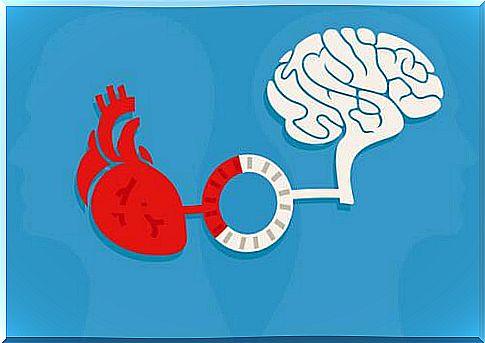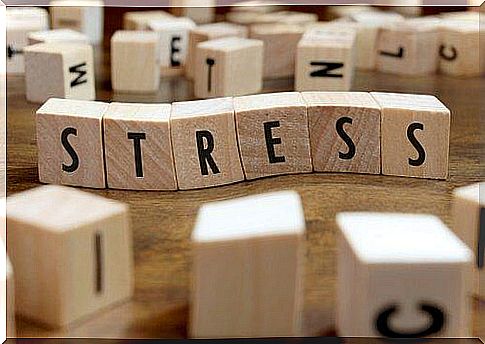Heart Coherence: Physical And Emotional Harmony

Heart coherence is a term that describes a state of strong physical and psychological efficiency. The heart has about 40,000 neurons, which connect to your emotional brain. The more inner balance and positive emotions you have, the more your heart is in harmony and tells your brain to stay calm. This helps keep ideas flowing and reduce stress.
It’s a fascinating concept that has a lot to do with emotional intelligence. It essentially indicates a state in which your nervous system, endocrine system, immune system, and (especially) cardiovascular system are working efficiently while controlling your emotions.
Believe it or not, your heart also has its own ‘brain’. In fact, it has a very complex, interconnected neuronal circuit. It affects both your emotions and the physiology of your body. In addition, your heart stimulates the release of certain hormones, such as adrenaline and oxytocin, which are linked to love, affection and prosocial behavior.
A calm heart, one that beats regularly and interprets that “everything is fine,” sends signals to the brain and the autonomic nervous system, tuning it to that same sense of well-being and tranquility. This is the fascinating definition of heart coherence.

Heart coherence: connection of brain and heart
To better understand the concept of cardiac coherence, we will first do a small experiment. Let’s sit for a few minutes and try to relax. Place your hand on your heart and feel how it beats.
Does it beat very fast or does it beat rhythmically and quietly? When you are truly relaxed, your heart rate will be normal and your thoughts will flow calmly, free from pressure and negativity. However, if you have a fast or irregular heartbeat even while sitting, then you are probably in a state of stress or strong fear and anxiety. Your heart and brain think you are in danger.
As you can deduce, emotions such as fear, stress or anger cause your heart to beat fast and irregularly. When this happens, it causes biochemical and biological chaos. The imbalance extends to the rest of your organs, especially your brain. Did you know that your heart actually sends a lot more information to your brain than the other way around? These signals have significant effects on our emotions, and our emotions in turn affect how our brains function.

Heart coherence and chaotic heart rhythm
As you can see, negative emotions, such as anger or irritation, trigger a chaotic heart rhythm. However, things that we consider normal, such as always worrying or being tense due to work or relationships, can also disrupt the harmony. Such conditions also cause an irregular heartbeat.
Heart coherence, on the other hand, happens when we feel calm, happy and content. The harmony in your heart not only reaches your brain and allows you to think better, more positively and more creatively. No, it also improves your physiological rhythms. It ensures that our breathing, circulation and digestion work in sync and in a healthier way.
How can we promote heart coherence?
Good heart coherence, as you may have guessed, has a lot of benefits. Not only will you feel much better physically, but your brain will become more efficient at processing information, generating ideas, and connecting with the present.
But how do we do it? How can we promote heart coherence? Here are some keys.

- Biofeedback. Biofeedback is a very helpful form of therapy for people with ADHD, insomnia, chronic pain, phobias, and more. The goal is ambitious and very interesting: to control the physiological functions of the person and thus improve his physical and mental health. If you want to try it, go to a center where they specialize in biofeedback.
- Be more aware of what is going on inside you. In our lives we are often too focused on the outside and what we do or don’t have. However, we are disconnected from what is going on inside us, where the heart and the mind are in charge. Learn to listen to yourself, control your breathing and meditate.
- Yoga, mindfulness, physical exercise. One way to promote heart coherence is to do exercises that make you more aware of your heart, how you breathe, and how you feel. Try to spend an hour a day making mind-body connection.









